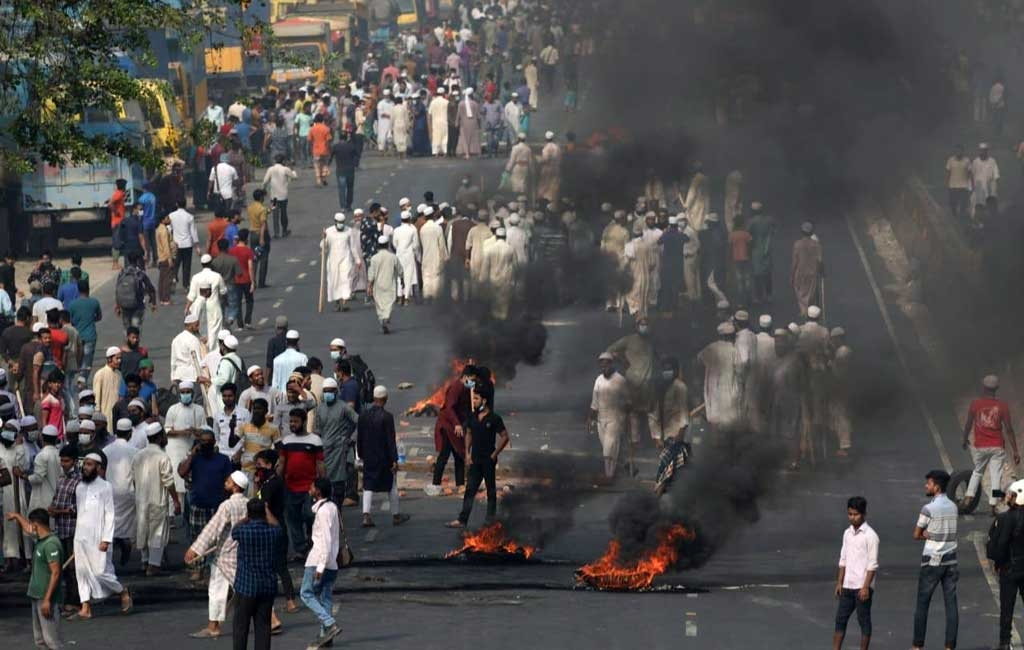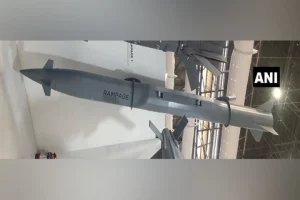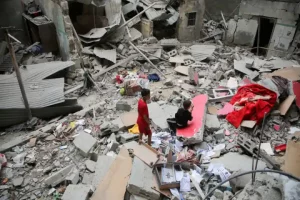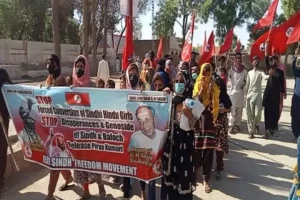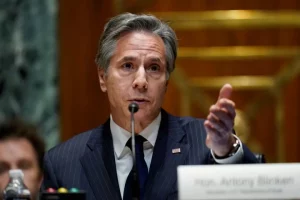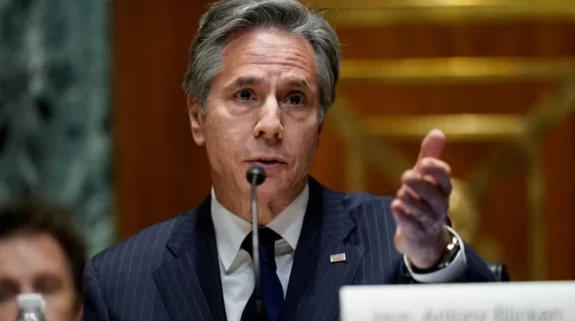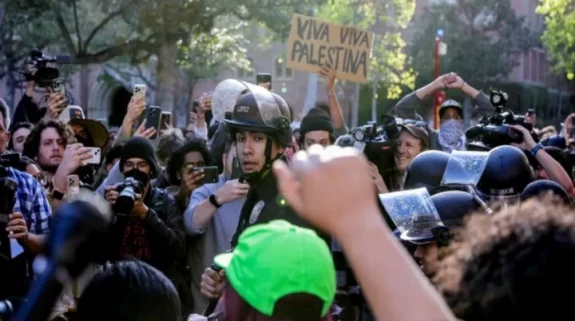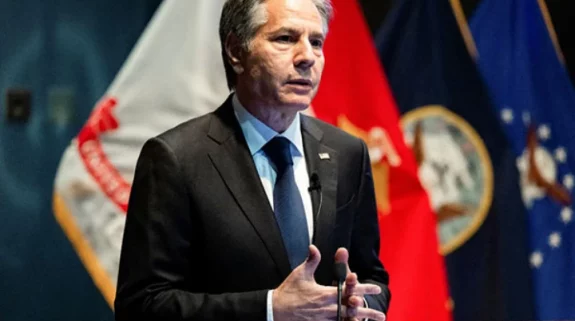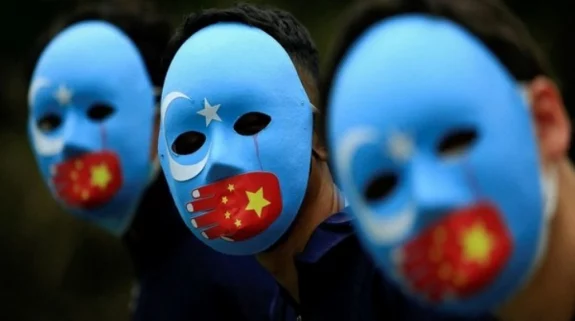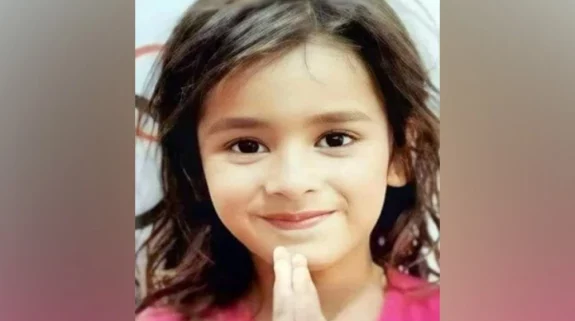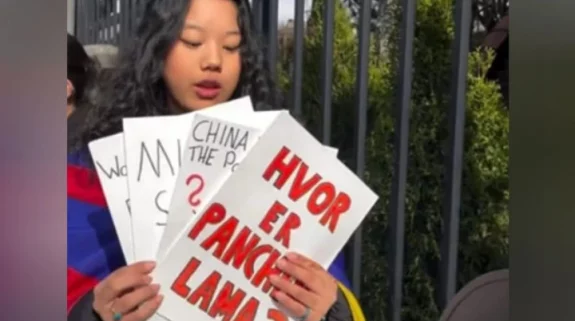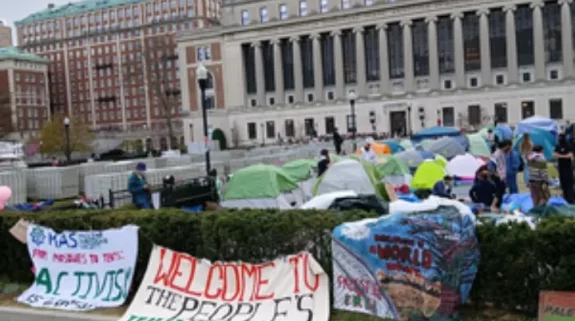India hopes that the Sheikh Hasina government will investigate the protests led by the radical outfit Hefazat-e-Islam against Prime Minister Narendra Modi's visit to Bangladesh to attend the golden jubilee celebrations of the country's independence and the birth centenary of Bangabandhu Sheikh Mujibur Rahman.
The violent protests continued even after the visit leaving 13 people dead and several injured.
According to people familiar with the matter, the Bangladesh government is looking into the role played by the Pakistan High Commission in Dhaka in supporting and funding the agitation and embarrassing Bangladesh Prime Minister Sheikh Hasina.
"As far as the violence is concerned, we have always been against fundamentalism and extremism. We are confident that the Bangladesh government will address the challenge," Indian External Affairs Ministry spokesperson Arindam Bagchi told the media in New Delhi on Friday, adding that the protests by Hefazat-e-Islam would not cast any shadow on the amicable ties between the two countries.
Sources disclose that this was the first major protest organised by the Hefazat-e-Islam after Junaid Babu Nagari took over the Islamist hardline group in November last year. Nagari is a Hadith scholar who studied in Pakistan’s Jamia Uloom-e-Islamia for four years. According to the Hindustan Times, Junaid Babu Nagari became the Chief of the Hefazat-e-Islam after a bitter power struggle following the death of Shah Ahmed Shafi in September last year. Since then, Nagri was planning some major action to mark his presence.
Barrister Sheikh Fazle Noor Taposh, the son of freedom fighters who were assassinated along with Bangabandhu said in his tweets, "Recent violence by Islamist radicals in Bangladesh had backing from outlawed terrorist group #JamaateIslami which in the past had strong links with #Pakistan’s Inter-Services Intelligence #ISI.”
Al Nahean Khan Joy, the President of Bangladesh Chatra League (BCL), a student wing of the ruling Awami league had accused the Pakistan High Commission in Dhaka of secretly funding Hifazat-e-Islam to stage protests against PM Modi’s visit.
ALSO READ: Militant outfit leader threatens minorities in Bangladesh

“We secular and democratic people of Bangladesh condemn this attempt by Pak agency ISI. Shame on the government of Pakistan, the protector of terrorists around the globe,” said Joy in his tweet.
The Bangladesh parliament had tweeted suggesting links between Hefazat-e-Islam and the Pakistan High Commission. Sources say that elements from the Jamaat and the BNP had infiltrated the agitation and there is a strong Pakistani angle.
Hefazat-e-Islam, which means “protection of Islam,” claims to be a non-political front. It first came to the notice of authorities for protesting the 2009 policy for equal inheritance rights to women.
The organisation came to prominence in 2013 when it sent students from its nationwide network of madrasas to Dhaka to counter the “Shahbagh movement” of students that was demanding the death penalty for all war criminals of 1971. The Hefazat-e-Islam placed a list of 13 demands including punishment for atheist bloggers and changes to school textbooks.
But after the change of guard in November, unlike its founder Shah Ahmed Shafi who was often perceived to be soft on the ruling Awami League, Hefazat-e-Islam under Junaid Babu Nagari has the tacit support of the Khaleda Zia’s Bangladesh Nationalist Party and fundamentalist groups such as the Jamaat-e-Islami.

Prime Minister Sheikh Hasina and her government have taken concrete steps to stem Islamic extremism in Bangladesh by cracking down on radical groups and emphasising the democratic principles on which the country was founded. Bangladesh’s efforts to check acts of terrorism and the growing radicalisation have been, in many ways, exemplary. Its bilateral relations with India turned a critically important corner following the game-changing Sheikh Hasina’s landslide victory giving her a massive mandate in the elections of December 2008.
In order to stem the growth of radical ideas, both the countries have denied transit shelters and sanctuaries to international terrorist groups in the past.
With the efforts of the Sheikh Hasina government, an investigation into acts of terror committed in the past, have been launched afresh and have yielded positive results.






